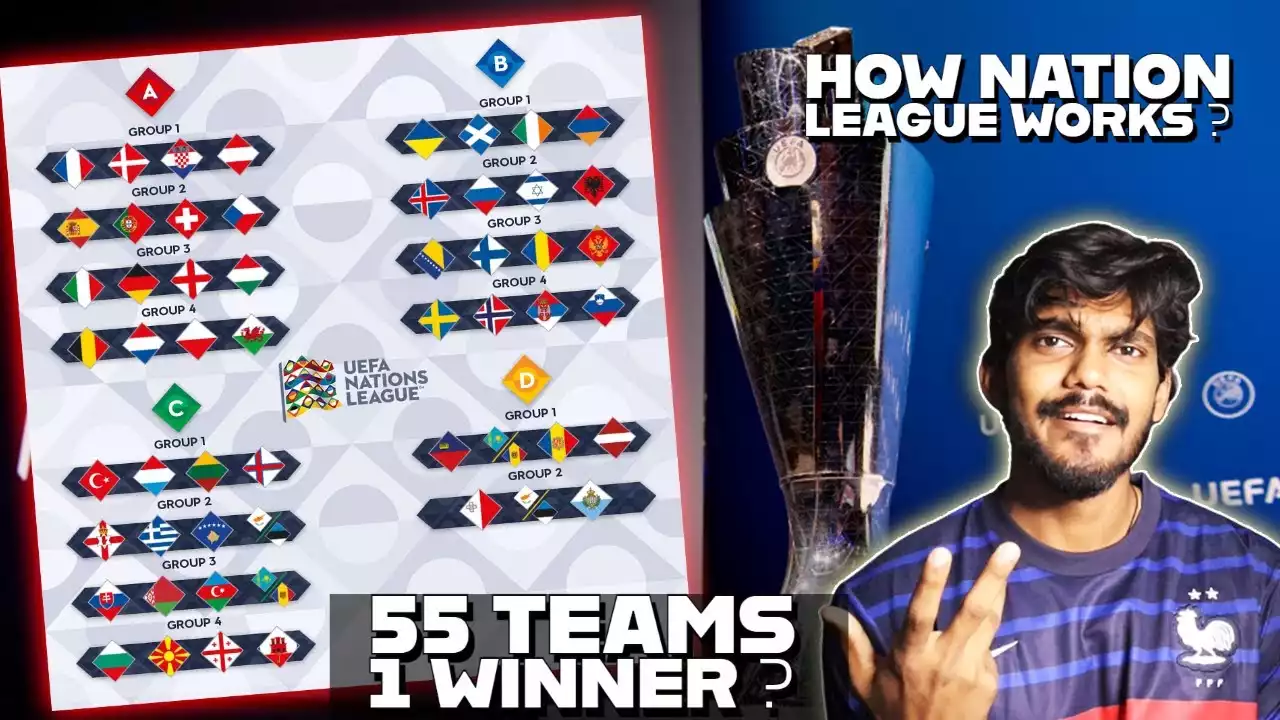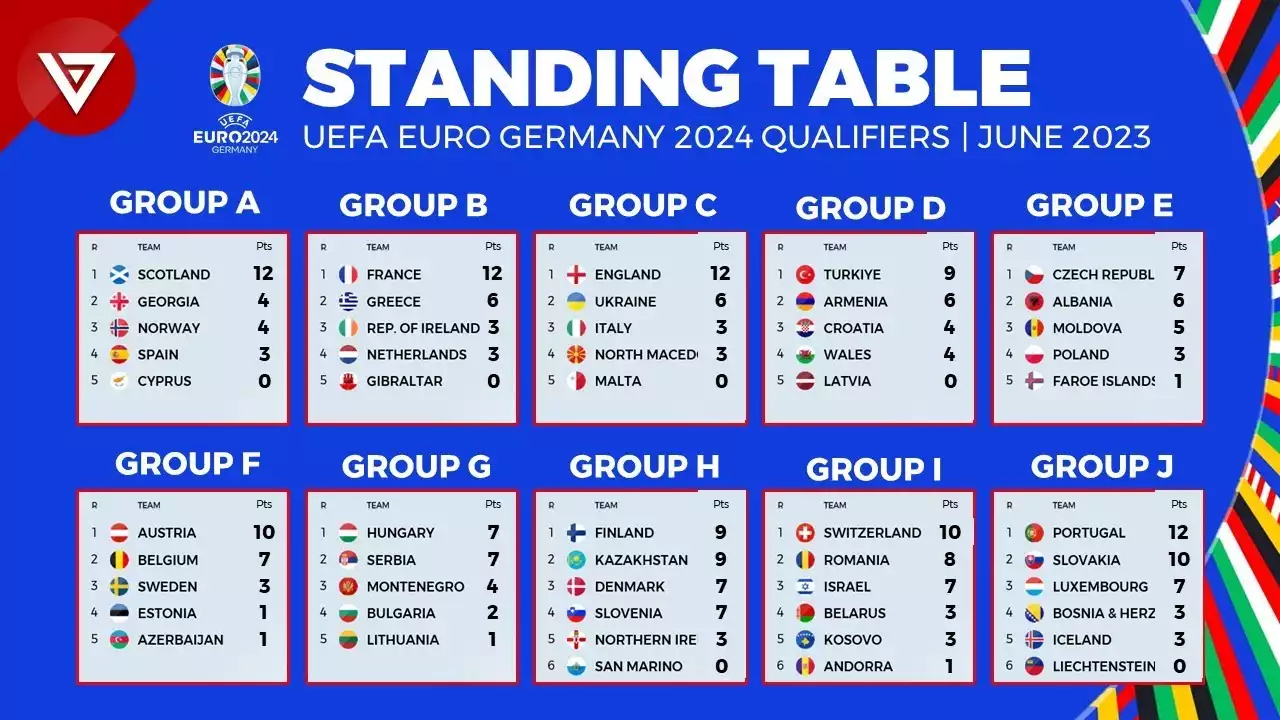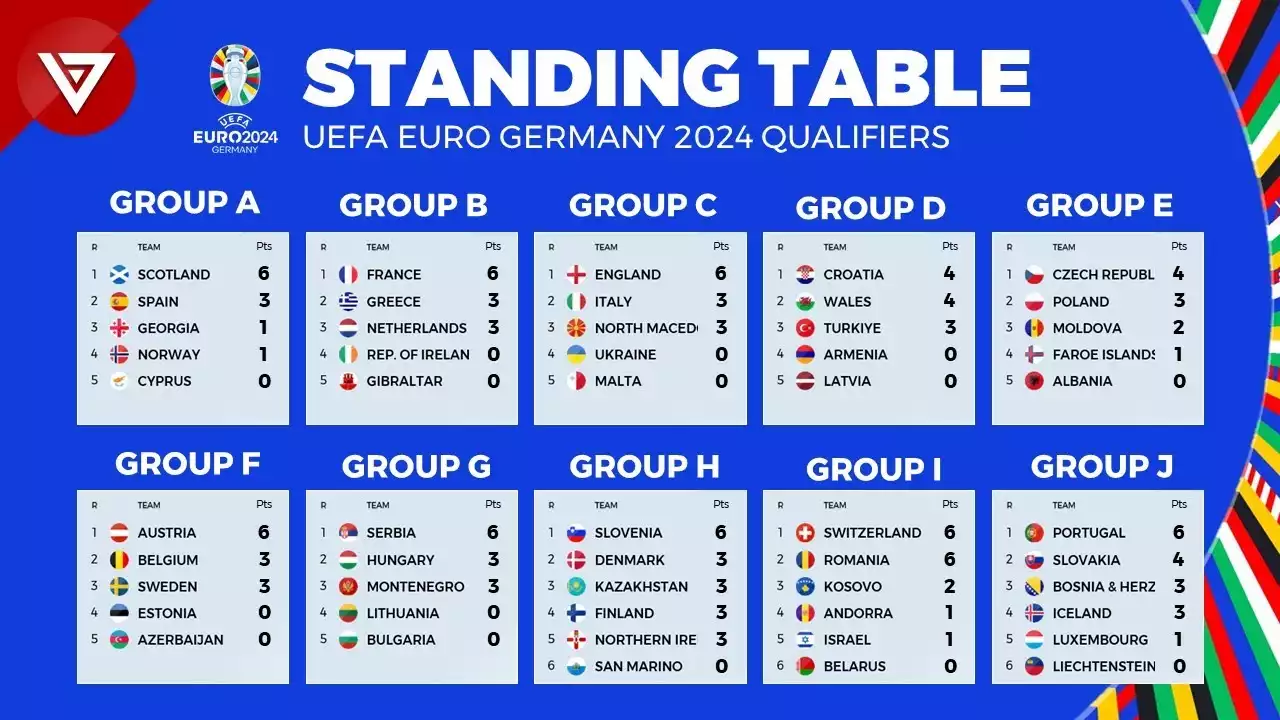How the UEFA Nations League works
The UEFA Nations League works on a league-based system, providing competitive matches between teams of similar levels. The tournament is divided into four leagues – League A, B, C, and D – based on the UEFA National Team Coefficient rankings.
In League A, the top-ranked teams in Europe battle it out for the title of Nations League Champion. The teams are further divided into groups, where they play home and away fixtures against their opponents. The group winners progress to a knockout stage, competing for the ultimate glory.
Format of the UEFA Nations League
The format of the UEFA Nations League is designed to provide excitement and meaningful matches for all participating teams. Each league consists of four groups, with three or four teams in each group. The teams play a total of six matches in the group stage, three at home and three away.
The top two teams from each group in League A progress to the knockout stage. The group winners from Leagues B, C, and D are promoted to the higher league for the next edition, while the bottom-placed teams in Leagues A, B, and C are relegated.
League A, B, C, and D Explained
League A of the UEFA Nations League consists of the top-ranked teams in Europe. These teams are usually the powerhouses of international football, including the likes of France, Germany, and Spain. The competition in League A is fierce, with every team vying for the coveted Nations League title.
League B comprises teams that are slightly lower in the UEFA National Team Coefficient rankings but still possess considerable talent. This league includes teams such as Sweden, Russia, and Ukraine. The competition in League B is intense, as teams fight for promotion to League A.
League C consists of teams that are further down the rankings, but still have the chance to compete against similar-level opponents. In this league, you'll find teams like Scotland, Greece, and Norway. The battles in League C are highly competitive, with teams aiming for promotion to League B.
Lastly, League D includes teams that are lower in the rankings but have the opportunity to showcase their skills and progress through the leagues. These teams may be considered underdogs, but they possess the determination to prove themselves on the international stage.
Promotion and relegation in the UEFA Nations League
One of the most exciting aspects of the UEFA Nations League is the promotion and relegation system. The teams' performance in the tournament determines their fate in terms of moving up or down the leagues.
The group winners in Leagues B, C, and D are promoted to the next higher league for the next edition of the Nations League. This provides an opportunity for teams to showcase their progress and compete against tougher opponents.
On the other hand, the bottom-placed teams in Leagues A, B, and C are relegated to the lower league for the next edition. This adds an element of pressure and competitiveness to every match, as teams strive to avoid relegation and maintain their place in the higher league.
Qualification for the UEFA European Championship through the Nations League
The UEFA Nations League also offers a backdoor entry to the UEFA European Championships for teams that do not qualify traditionally. The competition provides an alternative route to the prestigious tournament, adding an extra layer of excitement.
The teams that do not qualify for the European Championships through the regular qualification process have a chance to secure a place through the Nations League. The top-ranked teams in each Nations League tier that have not already qualified through the traditional route participate in playoffs for the European Championships.
This creates an opportunity for smaller nations to make a mark on the international stage and compete against some of the best teams in Europe. The Nations League has opened up new possibilities for teams that may have previously been overlooked in the qualification process.
Key dates and schedule for the UEFA Nations League
The UEFA Nations League is played over a span of several months, with matches taking place on specific dates. The competition is spread out to ensure that teams have ample time to prepare and recover between fixtures.
The group stage matches are typically played in a staggered manner, with each team playing three matches at home and three away. The knockout stage follows the group stage, with the top teams from each group in League A competing for the title.
The schedule for the UEFA Nations League is carefully planned to avoid clashes with other international competitions and domestic leagues. This ensures that players are available for their respective national teams and can give their best performances.
Notable teams and players in the UEFA Nations League
The UEFA Nations League brings together some of the most talented teams and players in European football. From established powerhouses to emerging talents, the competition showcases the diversity and skill of the continent's footballing nations.
Teams like France, Germany, and Spain have a rich history of success in international football and are always strong contenders in the Nations League. These teams boast a wealth of talented players who excel on both the club and international stage.
In addition to the traditional powerhouses, the Nations League also provides a platform for smaller nations to shine. Teams like Iceland, who famously reached the quarterfinals of the UEFA European Championships in 2016, have continued to impress in the Nations League.
On an individual level, players like Cristiano Ronaldo, Lionel Messi, and Kylian Mbappe have made their mark on the Nations League with their exceptional performances. These players, among others, bring their star power and skill to the competition, captivating fans around the world.
Controversies and criticisms surrounding the UEFA Nations League
While the UEFA Nations League has been largely praised for its innovation and excitement, it has also faced some controversies and criticisms. One of the main criticisms is the congested fixture schedule, which can put a strain on players and clubs.
The addition of more competitive matches to the international calendar means that players have less time to rest and recover, leading to concerns about fatigue and increased risk of injuries. Clubs, in particular, have expressed concerns about the impact on their players' fitness and availability for domestic competitions.
Another criticism is the complexity of the format and rules. While the UEFA Nations League aims to provide a more meaningful and competitive international football experience, some fans and pundits find it difficult to understand the intricacies of the tournament.
Additionally, there have been debates about the significance of the Nations League compared to other international competitions, such as the FIFA World Cup and the UEFA European Championships. Some argue that the Nations League does not carry the same prestige and importance as these established tournaments.









